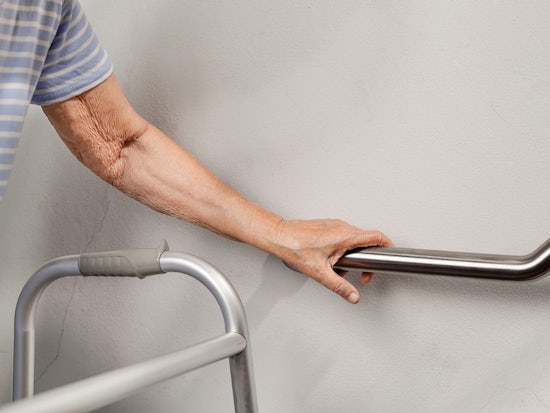5 ways to reduce the risk of seniors falling in the home
Having a senior member of the family fall in their own home is a
serious concern for many Australians, as they may be unable to get help
and could potentially suffer major injuries.

Families should be proactive about making a senior person’s home as fall-proof as possible (Source Shutterstock)
According to research, falls are the leading cause of death and disability due to injury in adults 65 years and older. That’s why families should be proactive about making a senior person’s home as fall-proof as possible, while letting them know how they can best prevent future falls.
Dr Ryan Harvey from House Call Doctor says, “Preventing the risk of falling is important not just because it protects physical health, but because it helps a person maintain independence as the body ages”.
Many factors can cause a senior to fall, such as: muscle weakness, gait balance deficits, medications that inhibit balance and co-ordination, aging hearing and vision, or a change in the environment around them.
To give your family member more independence at home and reduce their risk of injury, Dr Harvey recommends you do the following 5 things to reduce their risk of suffering a fall.
1. Be Healthy & Active
Eating fresh healthy food and getting regular exercise will maintain muscle and bone strength while preventing stiff joints.
“Make sure they’re eating foods rich in calcium and vitamin D, or consider supplements, as these vitamins can help maintain bone strength,” says Dr Harvey. “It’s also important to keep their fluids up.”
Make sure they have regular vision and hearing checks to keep on top of any conditions that may cause issues of imbalance. Also, be aware of any medications that may cause loss of balance, and ask your GP if you have any concerns.
2. Make Design Changes to The Home
“Most falls happen in the home, so simply redesigning some aspects of the home can make a real difference”, says Dr Harvey.
During this end-of-year clean out look for ways to reduce trip hazards, such as rugs, and repair any worn patches in carpet.
It’s also a good idea to clean and repair pathways and mark the edge of steps to make them easily visible and consider installing handrails and grab bars where you need them.
These safety devices are crucial for going up and down stairs, getting on and off the toilet, and stepping in and out of the bathtub without injury.
3. Wear proper shoes
Even through there is a good chance they aren’t running laps like they used to, a good pair of shoes or slippers will help. Find a comfortable pair that are firm fitting and flat, with a low-wide heel and opt for rubber soles that grip easily.
“Try to avoid walking around in socks, as they have little surface grip,” says Dr Harvey.
4. Have Proper Lighting
Inadequate lighting is another major hazard. To create a home that’s more suitable for an elderly person, install brighter light bulbs where needed (particularly in stairways and narrow hallways).
Dr Harvey says, “Adding night-lights in bedrooms and bathrooms helps a senior guide themselves around at night”.
5. Place a phone not too high up from the floor.
“If a fall were to happen, it’s ideal to have a phone within reach,” says Dr Harvey.
If they’re not used to keeping a mobile on them install some landline phones around the house, like on side tables and countertops.
Remember, if they live on their own and have fallen down also get them to call triple zero (000) for an ambulance immediately. After this make sure they call a neighbour or nearby family to check on you while you wait for the ambulance.

Dr Ryan Harvey is the Deputy Clinical Director at House Call Doctor. He is highly experienced in paediatrics, and has administered medical care to children living in remote overseas communities. He now works with families, administering acute care when unexpected medical situations arise overnight.










